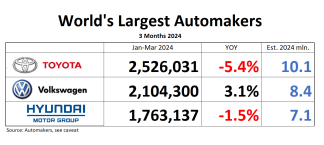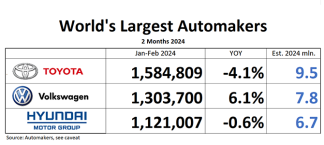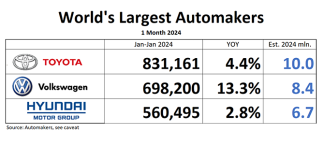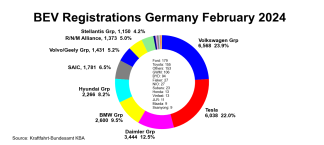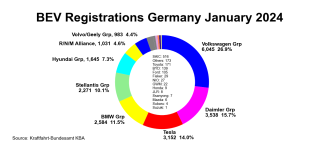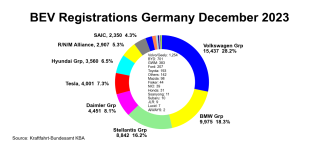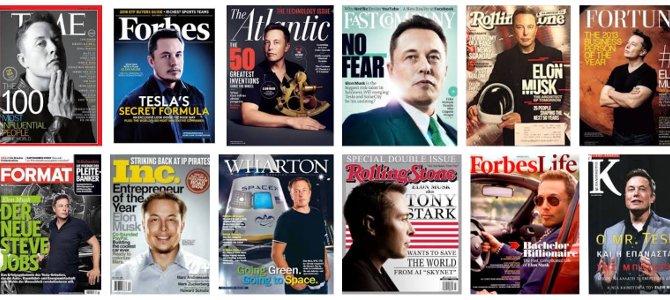
If “fake news” wasn’t already a zeitgeist-defining trope after the 2016 election, Elon Musk’s Twitter recent crusade against “the holier-than-thou hypocrisy” of journalists, editors, “big media companies” and the “clickbait” business model sealed the deal. Raging against the “incredibly dishonest” and “sanctimonious” journalists who have written critically about his management of Tesla in recent days, Musk promised to launch a website “where the public can rate the core truth of any article & track the credibility score over time of each journalist, editor and publication.”
Like Trump, Musk is clearly tapping into very real public concerns about the state of the media but his approach suggests that he is more interested in exploiting distrust in the media than fixing it. In a Twitter poll about his proposed rating site, he offered followers a choice between approving of his vague plan and voting “no, the media are awesome.” This false choice, between complete satisfaction with the status quo and total support for his “Yelp for Journalism,” betrays the true goal of his campaign: to pit his popularity against the rising tide of critical news stories about him and his companies, and force the public to make a choice.
Musk’s deeply insecure fixation with media coverage and his desire to strong-arm his way to unquestioning adulation are hardly new. Drake Baer’s deeply-reported story for Business Insider on the birth of Tesla and its first car, the Roadster, demonstrates the fact that mainstream media validation has always been a major motivation for Musk’s involvement with the electric automaker. When Tesla first brought its Roadster out of stealth mode, a New York Times story that completely ignored then-Chairman Musk in favor of then-CEO and original founder Martin Eberhard inspired an angry email from Musk in which he raged “the way that my role as been portrayed to date, where I am referred to merely as ‘an early investor’ is outrageous.” Musk’s argument: in addition to leading Tesla’s early investment rounds, he had contributed to styling decisions on the Roadster.
According to Eberhard, Musk’s objections to being left out of Tesla’s original round of press coverage was “the first time we really butted heads,” and with time the conflict led to Eberhard’s ouster and a lawsuit in which Eberhard accused Musk of attempting to “rewrite history” and “appropriate Eberhard’s legacy.” According to Eberhard’s complaint, Musk’s contributions beyond his role as an investor amounted to his “persistent and distracting interest in random details of marginal importance.” That legal battle ended with a settlement that named a total of five company “founders,” but Musk’s contentious quest for media accolades was just beginning.
As the Roadster transformed perceptions of electric cars, Tesla’s position at the intersection of environmentalism, high technology, and Hollywood cool launched Musk from a mere member of the “PayPal Mafia” to a bonafide media star. A selection of cover stories, recently tweeted by Dan Primack of Axios, illustrates the genre that defined his public image: Musk, typically staring intently away from the camera (and presumably towards a bold future), surrounded by words hailing his vision, bravery, altruism, and influence in more or less hyperbolic terms.
Even Tesla’s own financial disclosures make it clear that overwhelmingly positive coverage of the company is key to its ability to grow without incurring the costs of traditional advertising. Tesla’s year-end 10-K report for 2017 admits that “historically, we have been able to generate significant media coverage of our company and our vehicles, and we believe we will continue to do so. To date, for vehicle sales, media coverage and word of mouth have been the primary drivers of our sales leads and have helped us achieve sales without traditional advertising and at relatively low marketing costs.”
Yet despite the flood of hagiographic coverage from the world’s largest and most influential media outlets, Musk developed a surprising sensitivity to critical coverage. Gadfly coverage from Gawker’s Valleywag blog prompted Musk to write a piece at TechCrunch calling Valleywag editor, Owen Thomas, “Silicon Valley’s Jayson Blair.” When New York Times columnist Randall Stross questioned whether taxpayers should extend loans to Tesla given that its only product started at $109,000, Musk called Stross “a huge douchebag” and demanded a correction that stated that the loan Tesla was applying for was for the “development of a sedan that, after tax credits, would cost about $50,000” (that sedan, the Model S, ended up with an average transaction price of about $100,000).
No criticism was too small for Musk to hold up as a sign of his persecution. The Truth About Cars, the blog where I began my career, never seriously challenged the top tier of automotive blogs in terms of traffic, yet the “Tesla Deathwatch” series that its founder Robert Farago added to its far more prolific GM, Chrysler and Ford Deathwatch series became a touchstone for Musk’s warped sense of victimhood. This editorial afterthought, which was largely ignored outside of the 2008 time period when Musk himself later admitted Tesla had nearly gone bankrupt, figured heavily enough in Musk’s psyche to be mentioned in his semi-authorized biography by Ashlee Vance and the company’s 2016 shareholder meeting.
Just days after Musk sardonically held up TTAC’s Tesla Deathwatch series as a reflection of the “huge support” that Tesla had received from the media eight years earlier, I got an up-close look at Musk’s commitment to truth and objectivity in media coverage. I had published a blog post here at Daily Kanban about Tesla’s practice of requiring that customers sign nondisclosure agreements in exchange for “goodwill” repairs and buybacks of defective vehicles, which included a quote from the National Highway Traffic Safety Administration calling the practice “troublesome” and “unacceptable” and stating that Tesla had altered the language in the agreement at the agency’s request. In response, Tesla published a post on its company blog accusing me of “fabricating” a suspension defect and suggesting two possible motivations: that I was pursuing a vendetta or that I was attempting to manipulate Tesla’s stock price in order to profit from short selling.
Here was the prototype for Musk’s attack on the broader media years later: rather than engage with the substance of a critical news story, Tesla simply gave its own version of the story and let Musk’s wild popularity do the rest. Though I responded point by point to Tesla’s post, Tesla’s insinuation was more powerful than my attempt to engage in logical discourse and my email and social media inboxes were inundated with waves of angry fans telling me that I would shortly be imprisoned by the SEC for stock manipulation. There was no amount of evidence or strength of argument that I could muster that could stand against the unsupported assertion of this powerful man and the popular company he ran.
This episode vividly demonstrated the cynicism with which Musk views the media. Despite decrying the press’s lack of truthfulness and credibility, Tesla’s own official blog hosts defamatory fabrications and speculation that would destroy any media company that published them. Meanwhile, Musk spins a few scattered criticisms of the company from bloggers and columnists into far-reaching conspiracies of short-sellers, Big Oil shills and clickbait-mongers that ignore the overwhelmingly positive coverage of himself and Tesla from nearly every major outlet.
This cynicism is evidenced by the outlets and coverage Musk does choose to amplify, as exemplified by the tweet that kicked off his latest anti-media rant. Musk retweeted a story based on comments from Tesla bull analyst Ben Kallo, posted on Electrek.co which is owned by Tesla investor Seth Weintraub and whose “about” section states “some writers of Electrek maintain positions in $TSLA and other green energy stocks.” Fred Lambert, the author of the story Musk shared, also owned Tesla shares and promoted the company’s stock at The Motley Fool before coming to Electrek.
In short, in the very tweet in which he decried “the holier than thou hypocrisy of big media companies,” Musk was sharing a story written by a former Tesla stock promoter, based on quotes from a prominent Tesla shareholder and promoter and published on a website owned by a Tesla shareholder. Really, what more can one say about Musk’s crusade for independent and unbiased journalism than that?
